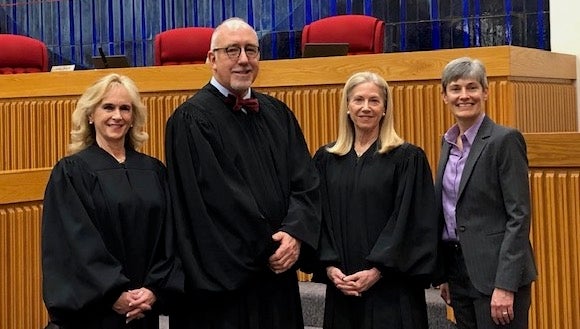Pitt Law Women’s Association Honors Marketa Lindt (JD ‘94) as 2020 Marjorie Matson Woman of the Year
Marketa Lindt (JD ‘94), President of the American Immigration Lawyers Association and partner at Sidley Austin LLP in Chicago, has been named "Woman of the Year" and will be honored at the annual Marjorie Matson Day celebration hosted by the University of Pittsburgh School of Law Women's Association.
The event will be held on Thursday, April 2, at 5 p.m., at the Allegheny Harvard Yale Princeton Club at 619 William Penn Place in Pittsburgh. This annual event commemorates Marjorie Matson (JD ‘37), a prominent Pitt Law graduate with a distinguished career in civil rights and First Amendment law, who served as Allegheny County's first woman assistant county solicitor in 1941 and the first woman assistant district attorney from 1948 to 1952.
Lindt, a 1994 Pitt Law graduate, is an attorney at Sidley Austin LLP in Chicago. She works with U.S. and multinational corporations to implement business immigration visa programs to attract and retain foreign national talent. Lindt leads Sidley’s I-9 compliance practice, where she counsels and defends companies regarding their hiring practices of foreign national employees and compliance with the government’s I-9 verification requirements. In June 2019, she was elected to a one-year term as the national President of the American Immigration Lawyers Association. In this capacity, Lindt testified at a hearing before the House Judiciary Immigration Subcommittee regarding business immigration processing delays at USCIS. She also serves as a member of the U.S. Chamber of Commerce’s Immigration Policy Committee. Lindt is additionally a leading speaker and author in immigration law and policy, and she is heavily involved in Chicago-area services to assist underserved immigrant communities.
To RSVP for this event or to learn more, please email pittlawwomen@pitt.edu. The RSVP deadline is March 16.

